(If you’re reading this in your email browser, I recommend clicking on the title to switch to reading on the Substack platform (https://juliusruechel.substack.com) because most email programs truncate larger image-rich Substack posts.)
This is Part Three of my Deep Dive into the psychological unravelling of Western Civilization. In Part One — Why Western Civilization Lost Its Mind — I explored the psychological origins of our unravelling into dysfunction and chaos as all the civilizing forces that keep our feral human nature in check begin to break down.
In Part Two — Brain Games — I explored the many strange ways in which our brains work which, when overlaid on the current political, institutional, and social crises, explains many of the bizarre behaviours that are boiling out of society.
And in this third and final part of the essay — A People Unfit for Democracy — I will explore the social cycles that have haunted humanity since the dawn of time as different forms of government rise, grow stale, and get replaced by the next stage — and the implications for our own era as our corrupted democracies teeter on the brink of exhaustion.
~ ~ ~
Crossing the Rubicon into Dictatorship
Many of the ancient Greek thinkers described a natural cyclical progression through various forms of government as each stage succumbs to corruption and instability driven by human flaws and societal decay. Plato described a social cycle distinguished by five types of government, each of which follow the other in turn.
In his view, the starting point in the cycle is an aristocratic form of government — usually some kind of philosopher-king who rules justly based on his wisdom, honor, and integrity.
But as future generations of an inferior nature inherit the throne, this degenerates into timocracy — a state in which power is no longer earned due to the wisdom of the philosopher-king or due to the noble virtues of an aristocratic class; instead power is derived entirely from the inherited wealth and property owned by the aristocratic class, without any regard for social or civic responsibility.
As wealth continues to accumulate and gets concentrated in ever fewer hands, this gives way to the next stage in the cycle — oligarchy — in which a frugal and self-interested coalition of extremely wealthy individuals rule over society.
In time, as the growing gap between rich and poor fuels ever more bitter tensions between the social classes, the majority eventually forcibly overthrows the wealthy ruling minority, leading to democracy in which “the people” elect their own leaders.
But as the lower classes become more numerous and leadership competitions devolve into populism and spectacle, mob rule becomes ever more common until some clever demagogue leverages the mob’s fear of a return to oligarchy by establishing a tyranny, in which tyrants enslave the population and “eliminate” anyone who poses a threat to their power. This leaves society in the hands of the worst members of society, and with no discipline to create civility and order. Society devolves into chaos, and war is frequently used as a tool to consolidate the tyrant’s grip over society.
In Plato’s view, the tyranny that emerges from an exhausted democracy is the most unjust form of government.
As layers upon layers of laws emerge to legitimize the tyranny and plunder, the system becomes perfectly insulated against any democratic effort by the people to cast off the tyranny by reforming the predatory democratic system using the tools of democracy. But eventually, the tyranny is forcibly overthrown by some emergent new philosopher-king who breaks all the “democratic” rules and thus dislodges the tyranny, and so the cycle begins anew.
Many other ancient Greek writers proposed different variants on this theme. For example, Polybius proposed three basic forms — democracy, aristocracy, and monarchy — each of which devolves into its degenerate mirror image — mob rule, oligarchy, and tyranny — before giving way to the next stage in the cycle.
As a side note: in Part One of this essay I began by discussing why I disagree with Mattias Desmet’s book, The Psychology of Totalitarianism, in which he laid out four psychological conditions that must emerge in a population to explain why society allegedly becomes vulnerable to mass hysteria and becomes willing to embrace totalitarianism (which he views as a distinct form of dictatorial authoritarian rule).
In Desmet’s view, there is a psychological distinction in the minds of the masses, which separates “regular” dictatorship from totalitarian dictatorship, with the former being more utilitarian and the latter more ideological as it seeks to control everything right down to your thoughts. In my view, while those differences may be useful for describing differences between authoritarian regimes, I believe those academic descriptors are not particularly useful in understanding why society is suddenly plunged into one type of tyranny or another.
Totalitarianism isn’t a new or unique form of tyranny — modern technologies and modern contexts certainly give each regime their own flavor and unique new tools with which to control their populations, but the collective tyranny of the Spartan State in ancient Greece between 900-192 BC, the totalitarian rule of Qin Shi Huang (China’s first emperor) between 221-210 BC, the ideological and militant Fatimid Caliphate from 909 to 1171 AD, or the cult-like ideological rule under Akhenaten’s Egypt from 1353-1336 BC all fit the mold of extremely ideological leadership, society-wide thought control, society-wide ideological fervor, the crushing of rival beliefs and the extermination of rival believers, and intense policing of the private sphere.
Tyranny comes in many forms because it has to mold itself to the society in which it operates. The flavor of the tyranny that emerges will reflect the stage of Plato’s social cycle as society evolves through different types of government and will necessarily reflect the culture and historical context of each era. An ideological society (like revolutionary Russia, which was fixated on the Bolshevik/Marxist class struggle; or Hitler’s Germany, which was fixated on social engineering to escape Weimar Germany’s failed interwar experiment with liberal democracy, or the theocratic authoritarianism of the Ancien Régime in early Quebec, which was obsessed with Catholic purity and colonial control) will each produce an ideological form of tyranny that demands total control over the private sphere.
By contrast, a militaristic society intent on suppressing rival political powers and focused primarily on plundering state coffers (like Pinochet’s Chile, founded by military coup, or Saddam Hussein’s Iraq, founded on the idea of Arab nationalism) will produce a more utilitarian form of tyranny, less fixated on utopian ideals but no less brutal. The context of the era provides the flavor to the regime — a society obsessed with ideological ideas will produce ideological regimes, whereas societies that emerge during eras of brute power politics will produce more utilitarian regimes.
It’s also worth noting that new regimes often ride a wave of ideology into power, which they then dial back once their grip on power is secure — harnessing ideological zeal is a useful battering ram with which to topple the old guard, but once power is seized, governing demands stability over zeal. Even Chairman Mao only fanned the flames of ideology whenever he felt his power being threatened by whipping up the easily-incited mob as a weapon to purge threats, but then let things simmer down whenever he felt secure — a fact that further undermines the idea that totalitarianism is a product of pre-existing psychological pressures in society, while underscoring the ease with which a regime can inflame or dial back ideological fervor, on demand, simply by hacking our easily hackable human nature. Watching the ease with which a dose of fear about the Covid virus, Russia, or Trump can ignite mob-like behaviours in our own society reveals how easily any tyrannical regime can start a fire as long as it is in control of the airwaves that tell an obedient population what to think and feel.
I think Plato, Polybius, and their peers provide a far more logical explanation for the chaos and tyranny that emerge during unravelling eras. There is a natural degeneration to every form of government as each form becomes intolerable, unworkable, unreformable, and tyrannical — the social, economic, and cultural context of each era provides the flavour, but the cycle holds nonetheless. And at every stage, society’s leaders tap into our human nature to whip up the crusades, intimidate their enemies, and purge their rivals. Our irrational, tribal, hive-minded, and superstitious nature does the rest. A mob is to a politician as an army is to a general — a tool to be commanded if you know how to push the right buttons.
Rome provides a great example of this natural cyclical progression through Plato and Polybius’ different forms of government and the inevitable chaos and tyranny that erupts at the turning points.
Rome was founded in 753 BC by philosopher-kings. But over the course of next 250 years of monarchical rule, their Roman kingdom degenerated into tyranny until, in time, they were violently overthrown by the combined efforts of the aristocracy — and so the Republic was born.
But after 500 years of senators “tweaking” their republic to serve only themselves as all the founding principles of their Republic were eroded away, the only realistic way to dislodge their greedy hands from the levers of power was to empower some “champion of the people” who could cut through the layers upon layers of laws by which they had legalized their plunder and insulated themselves from the will of the people.
And so, in 49 BC, Julius Caesar (who had built a charismatic larger-than-life persona around himself as a kind of populist showman with heavy use of symbolism and even by claiming descent from the goddess Venus through her son, the Trojan hero Aeneas), famously crossed the Rubicon River, which was the geographical limit where generals were supposed to disband their armies before returning to the city of Rome, and led his armies into the City of Rome to declare himself “dictator for life”. He championed the cause of the long-suffering plebians — the common people — in a direct challenge to the entrenched and corrupted power of the aristocratic Senate. This enabled him to appeal to the masses and, through brute power and his popularity among the army, enabled him to bypass the traditional power structures of the Senate.
The crowds embraced him as the solution to an unsolvable problem that had been boiling, unresolved, for generations, even as many of his peers in the Senate (famously led by Brutus) began to plot against his life to “save the republic” from his dictatorship.
But could the story have turned out any other way? Both Caesar and the plebians believed that the only way out of corrupt, gridlocked, and dysfunctional rule by Rome’s self-serving senators was for someone to step in, sweep away their suffocating power, break all the rules by which they had consolidated their power over the republic, and thus save the people from the tyranny of the Senate.
But once the Senate was “broken”, how do you “re-found” the republic without returning power to the very same corrupt political class that had become parasitic on society? Once you seize dictatorial power by breaking all the norms, how do you give it back without facing capital punishment for the crime of overthrowing the Senate? And how many virtuous men exist on the face of this Earth who would even be willing to give back that awesome power once it falls into their hands?
And so, unsurprising, once Caesar gained power he held on for life. Although his dictatorial power was not technically hereditary, his precedent led to the power struggle that would ultimately turn the Republic into an imperial system. His assassination in 27 BC at the hands of the Senate (led by Brutus) triggered a 13-year civil war over which faction would gain control over Caesar’s unrestrained powers.
When Caesar’s nephew and chosen successor, Octavian, won that civil war, he renamed himself as Augustus and became Rome’s first emperor, ruling in the stoic tradition of a philosopher king despite the fact that his title Imperator Caesar Augustus merely meant commander or victor, rather than carrying the full monarchical weight we associate with “emperor” today. Once Caesar’s precedent had been set, it could no longer be undone.
“Saving Democracy”
The story of Julius Caesar’s and Octavian’s rise to the throne raises complicated questions for our own era.
Can the clock be turned back on a democratic era that has been wholly corrupted and hollowed out by entrenched, self-serving establishment interests?
Can the globalist revolution be stopped as they deliberately stoke chaos and ideological fervor to enable their bid to seize unrestrained power?
If they are stopped by an anti-globalist counter-revolution, will those who break the rules to dislodge this self-serving, tribal, globalist tyranny be willing to let go of their power once they lay their hands on it?
Will the next chapter in our history, which emerges from the ashes of the failed post-WWII era, be a globalist technocracy or will it be nationalist — and can this emergent rivalry between these two competing visions of the future be resolved without plunging society into all-out war?
Furthermore, if the people themselves have become so self-serving, apathetic, and enamoured with bread and circuses, is it even possible to re-found the American Republic, revive founding principles, and “save democracy”, if the majority of the people no longer value any of the principles that energized the republic in its early years? And what of the other countries — like Europe, Canada, Australia, and beyond — in which the checks and balances of democracy were far weaker to begin with so that they have no clear foundational principles to return to as a historic gold standard to inspire their democratic revival?
And even if society was to rediscover those principles, would our leaders, who have learned to hack our human nature to control the emotional mob, allow society to reform itself for the benefit of the people? Or would they kill those reforms by mimicking Mao’s strategy of inciting the mob to extinguish any threat to their rising power?
Just as philosopher-kings ruled with stoic restraint and wisdom, but their rule ended when that wisdom and restraint was exhausted, a democratic republic can also only thrive as long as the population itself has stoic restraint and wisdom when it goes to the ballot box.
At what point is the population itself so corrupted, so apathetic, so addicted to its bread and circuses, so disoriented by the unravelling era, and so self-serving that the population itself can no longer sustain a healthy democratic system without "democracy" immediately deteriorating back into mob rule even if some noble leader succeeds in temporarily cleaning it up?
If mob rule is the best we can do when the people are involved, what is the alternative to “government by the people, for the people”? Neither China’s nationalist fascism nor Europe’s globalist authoritarianism look like attractive alternatives, but those are the obvious alternative models of tyranny that are waiting for us if we don’t figure this out soon.
Is there, as Polybius believed, an ideal form of mixed government, which blends the best elements of monarchy, aristocracy, and democracy to try to create a more stable form of government? Polybius, writing in the 2nd century BC (a century before Julius Caesar’s time) viewed the Roman Republic as a blend of these elements and believed this is why the Roman Republic had remained stable for so long. This blended Roman system is also the system that the American Republic is modeled upon. The Romans came up with this system as the alternative to the much shorter-lived Greek experiments with direct democracy, which had unravelled into factionalism, irrational obsessions, and bickering, and which were easily conquered by outside powers because their direct democracy couldn’t match the centralized military force of undemocratic powers — citizen assemblies can’t pivot as quickly to face a new threat in the way that kings can, plus they crippled themselves by prioritizing flashy speeches over strategy.
But as author Mike Duncan so beautifully documents in his book, The Storm Before the Storm, by the time Julius Caesar seized power, the stability and principled foundations of the Republic had long since been eroded away, one precedent after another, as Rome devolved into a series of civil wars, mob violence, assassinations, and temporary dictators (like Sulla), all of which ultimately paved the way for Julius Caesar to come to power. As becomes clear as Duncan’s retelling of the history of the Roman Republic unfolds, if it hadn’t been Julius Caesar, it would have been someone else — the writing was on the wall. In the end, mixed government slowed the decline into tyranny, but it still wasn’t enough to stop the corrosive forces of time from taking their toll. Plato’s social cycle is inescapable — one era leads to the next, the question is not a matter of “if”, but “when”.
By the time Julius Caesar came along, his arch enemy Cicero (a staunch critic of Caesar’s autocracy) was still optimistic that the Roman Republic could be restored and would escape the cycle of government decay outlined by Polybius and Plato — in his view, the solution was to re-establish checks and balances to power, empower virtuous leaders, and re-introduce laws rooted in natural justice to replace the increasingly arbitrary power that had entrenched itself in the system.
It was to no avail. Despite his best efforts, Rome ended up with Caesar instead.
When civil war broke out after Caesar’s assassination (which Cicero supported after the fact but did not participate in), Cicero backed Octavian’s faction, and his popularity briefly soared as the champion for restoring the Republic. But as the tides of war shifted and a temporary power-sharing pact called the Second Triumvirate was formed between several warring factions, Octavian sold him out by allowing Mark Antony to include Cicero’s name on a list of enemies of the state, which marked him for death. The Triumvirate seized his wealth to add to their own and his head was chopped off and put on display in the Roman Forum.
And therein lies the crux of the matter — the question is not what should be done to reform an unravelling era to restore it to greatness but, once corrupted, whether the entrenched powers and the corrupted people themselves will allow the system to be reformed?
Or will they devolve into civil war as each faction seeks to seize the power and resources of the corrupted system for themselves — and in doing so fuel the acceleration towards tyrannical chaos, as described by Plato’s and Polybius’ social cycles.
Julius Caesar is famously said to have declared as he stepped across the Rubicon, "alea iacta est" (the die is cast).
We live in interesting times.
If you want to dive deeper into any of the topics covered in this three-part essay, I have attached three book recommendations for you below, all of which helped inform my thinking as I put this essay together.
Thanks for reading — and please share my essay widely to help me grow my audience!
~ ~ ~
If you are already a paid subscriber to my Substack, thank you so much for your support— it means the world to me!
If you are a free subscriber, I’d like to ask for your support by upgrading to a paid subscription. These kinds of essays require a colossal amount of time, effort, and research to produce. My liberty to tackle topics that others cannot comes from the fact that I am not sponsored by any think tank, media outlet, or political organization. I rely 100% on the support from readers like you.
But if you’re not quite ready to sign up for a paid subscription, perhaps you’d consider leaving me a tip in the Tip Jar on my website to help support my writing.
Recommended Books
Daniel Kahnemann’s Thinking, Fast and Slow (Amazon Affiliate Link)
Dario Maestripieri’s Games Primates Play: An Undercover Investigation of the Evolution and Economics of Human Relationships. (Amazon Affiliate Link)
Mike Duncan’s The Storm Before the Storm: The Beginning of the End of the Roman Republic (Amazon Affiliate Link)




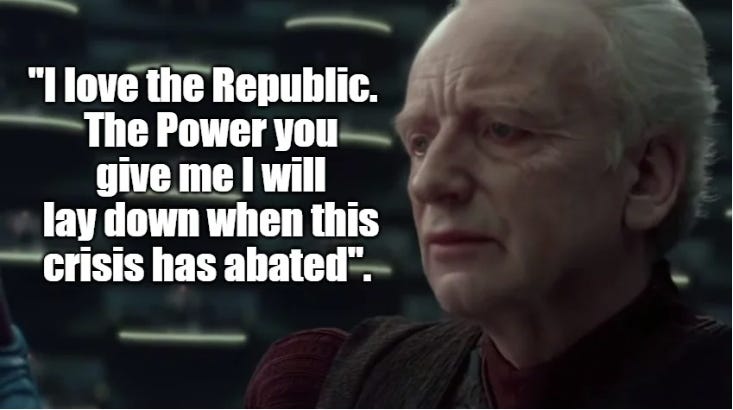
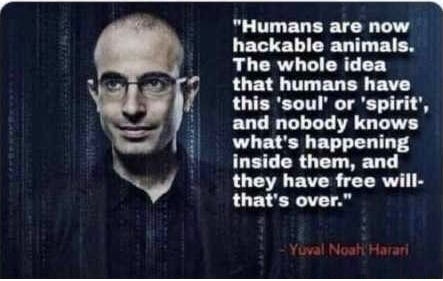

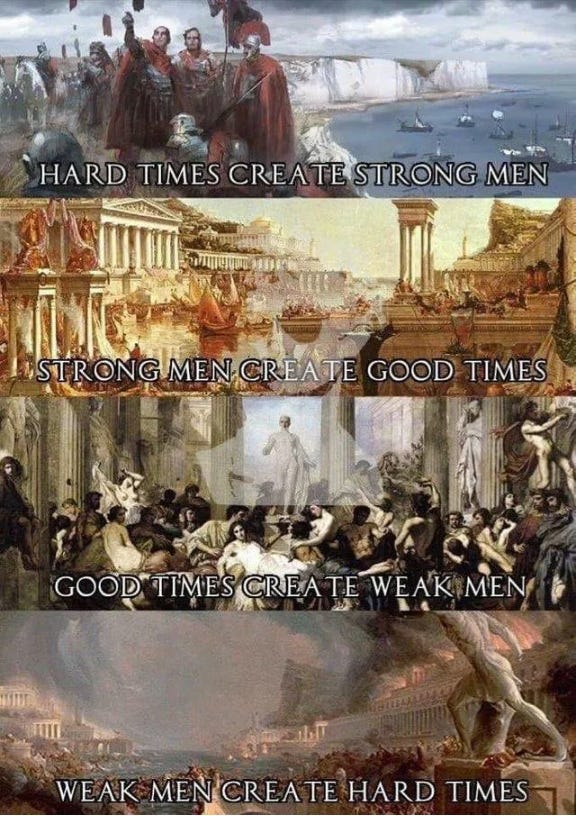



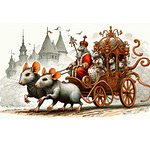
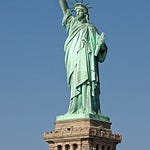




Share this post